The first "blows" have taken place between the US and China, reminding people of the long and painful trade war during President Donald Trump's first term.
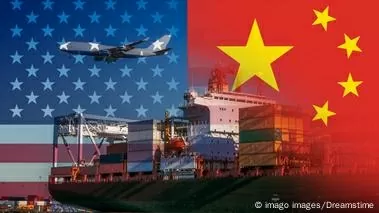 |
| The US and China are imposing tariffs on each other. (Source: DW) |
When President Trump signed an executive order imposing an additional 10% tariff on all Chinese goods (February 1), Beijing did not react too harshly. They only called on the world's largest economy to start negotiations and warned that there would be no winners in the tariff war.
China "counterattacks"
But shortly after the new 10% tariff on all Chinese goods exported to the US took effect on February 4, Beijing responded by announcing a 15% tariff on some goods imported from Washington including some coal and liquefied natural gas, and a 10% tariff on crude oil, agricultural machinery, large-engine cars and pickup trucks.
The tariffs will take effect on February 10.
China's Ministry of Commerce also added two US companies - biotech firm Illumina and fashion retailer PVH Group - owner of the Calvin Klein and Tommy Hilfiger brands - to its list of unreliable entities, citing their "violation of normal market transaction principles".
This move has significantly hindered the ability of companies to do business in the billion-people market.
Experts say it is unlikely that US President Donald Trump and Chinese President Xi Jinping will postpone retaliatory actions to engage in deeper dialogue - as the leaders of Mexico and Canada have done.
"If we don't get a deal like Mexico and Canada, I think the situation between the world's two largest economies is going to be pretty tense," said Clark Packard, a research fellow at the Herbert A. Stiefel Center for Trade Policy Studies at the Cato Institute.
Meanwhile, Mr. Wu Xinbo, Professor and Director of the Center for American Studies at Fudan University, commented: "Mr. Trump's unpredictability will certainly lead to significant shocks in the relationship between the world's two largest economies. It is inevitable that bilateral relations will face serious disruptions in the next four years."
There is reason for experts to say so. When asked about a meeting and negotiations between the US and Chinese leaders on February 4, Mr. Trump told reporters: "I'm in no hurry!"
Experts predict that the best outcome is for both countries to avoid further escalation, such as imposing higher tariffs.
The impact on the two economies
The tariffs Mr Trump has imposed on all Chinese goods could make American consumers pay more for a range of goods, including consumer electronics, toys and clothing, all of which are among the top items Washington imports from Beijing in 2024.
Of course, it's not just consumers who are suffering.
Many of the goods the world's largest economy imports are raw materials, such as rubber, plastics and chemicals, that American businesses need to make finished goods that are sold in stores.
“Increased import costs will make it difficult for these businesses,” Mr. Packard noted.
In addition, instead of buying from China, American businesses can import products from other countries that do not face high tariffs. Losing customers could hurt businesses in the country of a billion people and lead to job losses.
Likewise, US businesses that export goods to China that are also subject to new tariffs could be affected and forced to lay off workers.
 |
| Street in Beijing, China. (Photo: Linh Chi) |
For China, Mr. Trump's new tariff move will have a further negative impact on the economy, adding to the tariff burden he has imposed on tens of billions of dollars of goods during his first term.
The world's two largest economies have been through a trade war and tit-for-tat tariffs. But according to many experts, Beijing's position is different now.
Specifically, the Chinese economy is no longer as dependent on the US as it was in 2020. President Xi Jinping's country has increased the signing of free trade agreements (FTAs) across Africa, South America and Southeast Asia.
Chong Ja Ian, a researcher at the Carnegie Endowment for International Peace in China, said that Mr. Trump's decree to impose an additional 10% tax may not bring as much leverage as the US wants.
Beijing also has other cards to play. For example, China holds $769 billion in US Treasury bonds. Selling some of those bonds—even if it costs China itself—would push up borrowing costs for the world’s largest economy.
A three-way war?
Discussing what the future of the US-China trade war will look like, Morgan Stanley economists do not expect Mr Trump to stop at an additional 10% tariff on Beijing goods. These economists said that during the election campaign, he vowed to increase the tariff to 60%.
“We still expect Washington to impose additional tariffs on Beijing later this year as part of broader US trade policy objectives, and that would likely prompt further Chinese retaliation,” they wrote in a note.
There are also lingering concerns that the world's largest economy will face not just a one-sided trade war with China, but a three-sided one.
That could happen if the White House chief implements the 25% tariffs on Mexico and Canada after the new March 1 deadline and those two countries — as well as China — retaliate with higher tariffs on US goods. The world’s largest economy could quickly take a serious hit.
But of course, all of this is just speculation. Whether a trade war starts or not is still up to Mr. Trump!
Source: https://baoquocte.vn/nhung-don-danh-dau-tien-giua-my-va-trung-quoc-bat-dau-khong-chi-don-gian-la-cuoc-chien-hai-chieu-303366.html























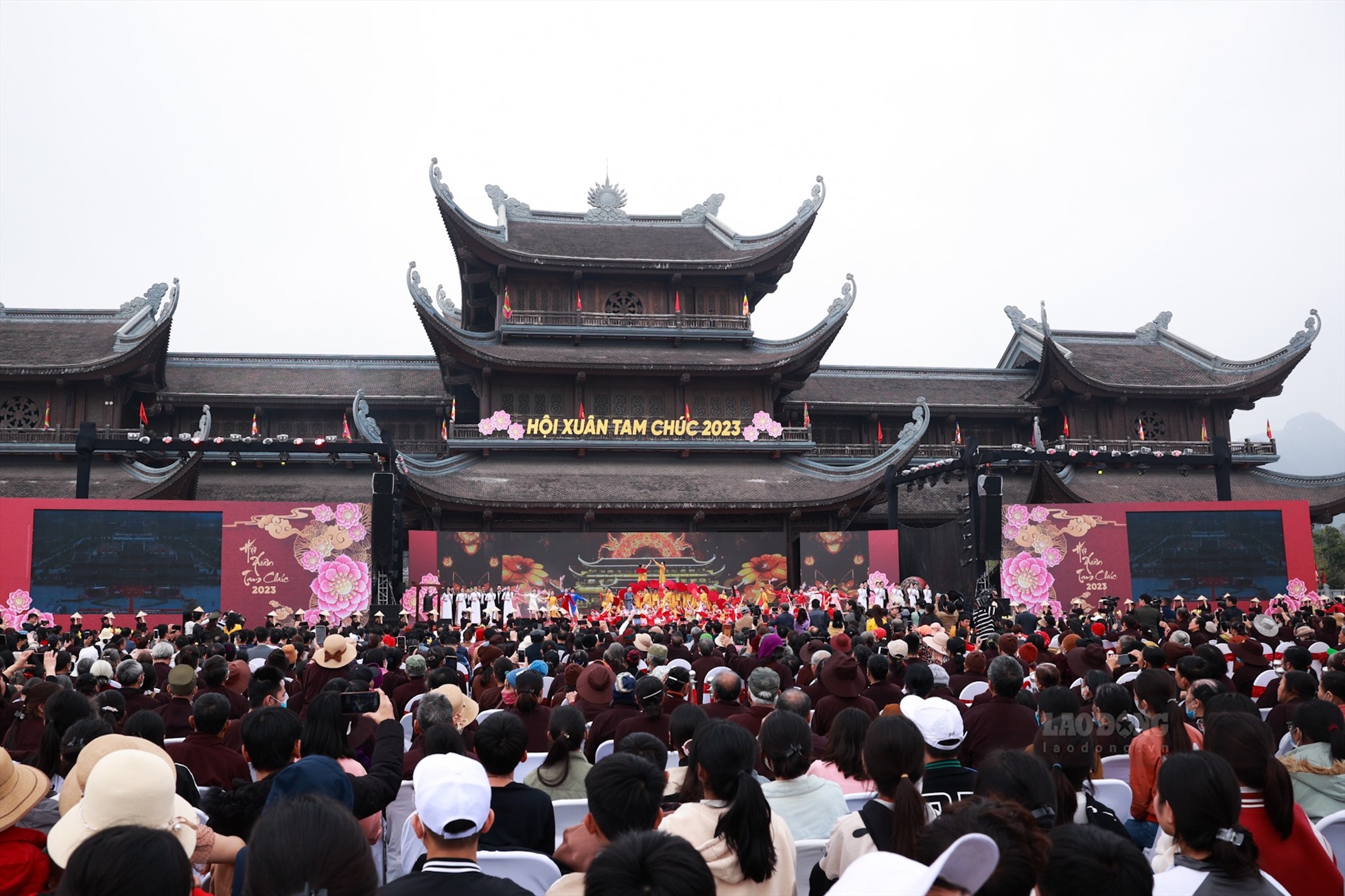







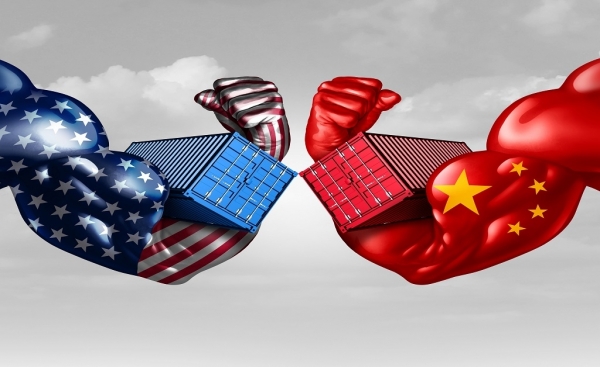
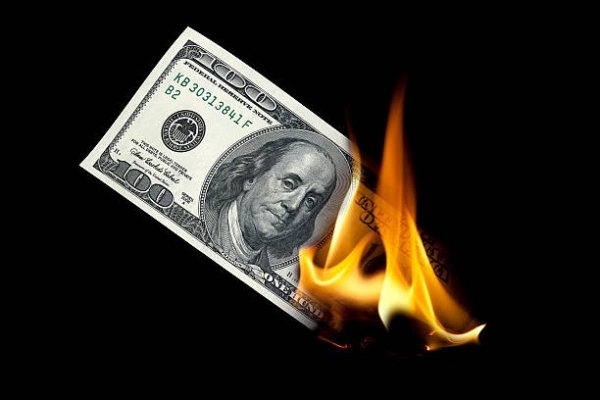
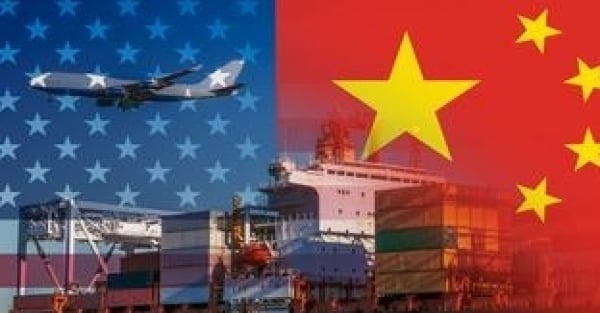

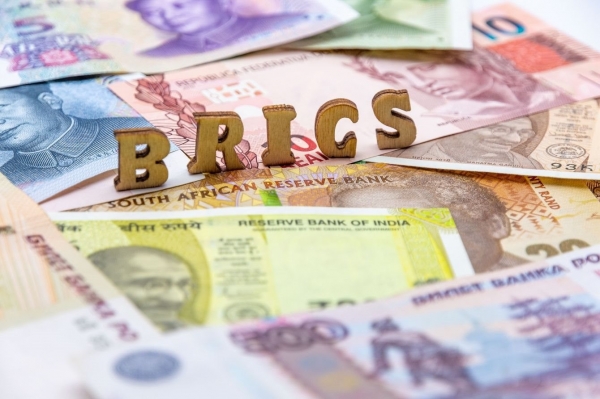



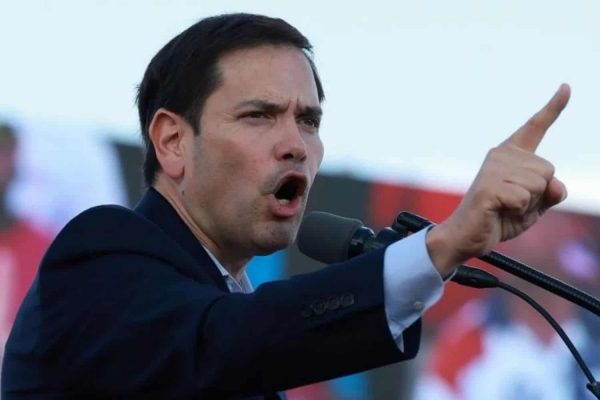














Comment (0)